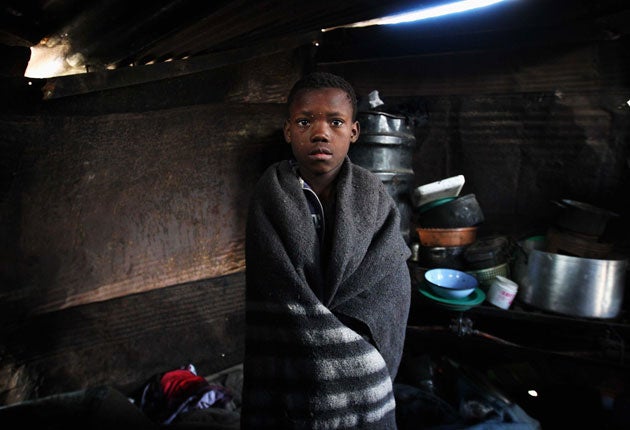Politicians blamed for health inequalities that kill the poor

Your support helps us to tell the story
From reproductive rights to climate change to Big Tech, The Independent is on the ground when the story is developing. Whether it's investigating the financials of Elon Musk's pro-Trump PAC or producing our latest documentary, 'The A Word', which shines a light on the American women fighting for reproductive rights, we know how important it is to parse out the facts from the messaging.
At such a critical moment in US history, we need reporters on the ground. Your donation allows us to keep sending journalists to speak to both sides of the story.
The Independent is trusted by Americans across the entire political spectrum. And unlike many other quality news outlets, we choose not to lock Americans out of our reporting and analysis with paywalls. We believe quality journalism should be available to everyone, paid for by those who can afford it.
Your support makes all the difference.People are dying "on a grand scale" around the world because of social injustice brought about by a "toxic" combination of bad policies, politics and economics, the World Health Organisation (WHO) said yesterday.
Avoidable health problems caused by social factors – as opposed to biology and genetics – are causing large-scale health inequalities in the UK, the WHO's Commission on the Social Determinants of Health has found after a three-year study.
Evidence showed that a boy born in the relatively deprived Calton area of Glasgow was likely to live on average 28 years fewer than one born a few miles away in Lenzie, a village by the Glasgow-Edinburgh railway. Life expectancy at birth for men in the fashionable north London suburb of Hampstead was found on average to be 11 years longer than for men born in the vicinity of nearby St Pancras station. Adult death rates were generally 2.5 times higher in the most deprived parts of the UK than in the wealthiest areas.
Internationally, the report concludes: "The toxic combination of bad policies, economics and politics is ... responsible for the fact that a majority of people do not enjoy the good health that is biologically possible. Social injustice is killing people on a grand scale."
A girl born in Lesotho, southern Africa, was likely to die 42 years younger than one born in Japan. Meanwhile in Afghanistan, one in eight women dies in childbirth, compared to one in 17,400 in Sweden.
Considerable racial inequalities are also highlighted in the report. It says 886,202 deaths would have been avoided between 1991 and 2000 if mortality rates had been equal between white and black Americans.
The report, which lays the blame for international social inequality squarely at the door of political and economic leaders instead of unavoidable factors, stressed that the reason for inequalities was not biology but social environment.
Closing the Gap in a Generation: Health Equity Through Action on the Social Determinants of Health was drawn up by hundreds of researchers from universities, institutions, ministries and non-government organisations.
Sir Michael Marmot, the commission's chairman, told Radio 4's Today programme: "The key message of our report is that the circumstances in which people are born, grow, live, work, and age are the fundamental drivers of health and health inequity. We rely too much on medical interventions as a way of increasing life expectancy.
"A more effective way of increasing life expectancy and improving health would be for every government policy and programme to be assessed for its impact on health and health equity; to make health and health equity a marker for government performance."
Ann Keen, Health minister for England, said: "The UK is at the forefront of tackling health inequalities but reducing the gap in life expectancy is still an issue."
Alan Johnson, the Health Secretary, welcomed the report. "We very much support this process," he said, pointing out that the its author, Sir Michael, was "a Brit". The Secretary of State championed Labour's record, citing Sure Start work schemes, the minimum wage and the driving down of child poverty.
"In the UK we've come an awful long way in the last 10 years to tackle health inequality," Mr Johnson said. But he added that "people's environment and the information they receive", including food labelling, were key to future improvements.
Life expectancy at birth
Japan 83
Australia 82
Sweden 81
Canada 81
Italy 81
UK 79
Finland 79
US 78
Chile 78
China 73
Iran 71
Egypt 68
India 63
Senegal 59
Tanzania 50
Mozambique 50
Lesotho 42
Sexes combined. Source: WHO, 2006
Join our commenting forum
Join thought-provoking conversations, follow other Independent readers and see their replies
Comments